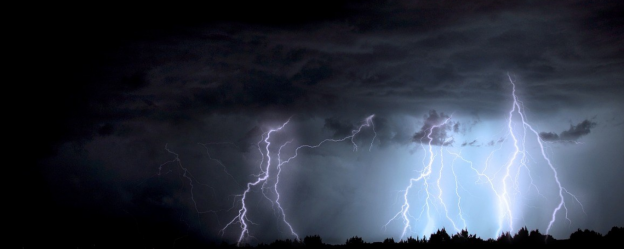Summary
We live in a society where many gods are worshiped, whether in temples with names or in lives given over to desires and passions which reign as deities. This situation is no different to the days of the early Church, or the days of Israel when false gods competed for the devotion of God’s covenant people and the nations surrounding.
Psalm 29 asserts that only God is truly powerful and reigns, using themes from the surrounding pagan nations and ascribing them not to their false gods (eg, Baal), but to Yahweh, our God. This psalm calls us to worship God, praise him for his power and glory, and praise him as our enthroned king.
Our passage explained
v1-2
As with many of the psalms, Psalm 29 begins with a call to worship God in verses one and two. Using repetition, these two verses encourage us to worship God for his “glory and strength” (v.1). This glory is “due his name” (v.2) through his glorious acts in history, where he reveals himself. Even the “heavenly beings” (v.1) are called to submit and bow before the only powerful God.
v3-4
In verses three to nine, God’s power and glory is praised as a divine presence controlling a thunderstorm. There are seven separate references to the “voice of the LORD” which demonstrates God’s complete control and power over the storm.
In verse three, God’s power is over the thunderstorm gathering its strength at sea (“over the waters”). This demonstrates God’s power over chaos and nature, which was often described in terms of the power of the sea (cf. Genesis 1 where God creates land and order from the waters). God’s voice roars out like “thunder” exercising control.
In verse four, “the voice of the LORD is powerful; the voice of the LORD is full of majesty”. Much as a storm is powerful and looks majestic in the sky as it approaches with lightning flashes and thunder rolling, so too God is powerful and majestic, imposing himself over nature.
v5-9
In verse five, the voice of the LORD “breaks the cedars of Lebanon” as the storm moves from the sea onto land. The cedars of Lebanon were well known for their size and strength and associated with this nation to Israel’s north. They were used in the building of Solomon’s temple to God (1 Kings 5). Yet God is more powerful than the strength of a foreign land; he snaps them like we snap twigs.
In verse six, the storm moves further over Lebanon and Sirion (Mount Hermon, the border of Israel’s conquest). There it makes the land “skip like a calf… like a young wild ox”. Not even the solid ground can withstand God’s power metaphorically described in the storm. The land bucks and weaves like in an earthquake at God’s power.
In verse seven, the voice of the LORD “flashes forth flames of fire”. God’s power is likened to lightning striking the land, setting alight flammable material. Nothing escapes God’s power and judgment.
In verse eight, the voice of the LORD “shakes the wilderness …the wilderness of Kadesh”. God’s power and control extends over vast territories, not just small parts of the world.
In verse nine, the voice of the LORD “makes the deer give birth and strips the forests bare”. God’s power can upset the natural world, causing animals to give birth and flattening forests. Yet despite this, in God’s presence there is peace as “in his temple all cry, “Glory!”
v10-11
Faced with this description of God alone as the one whose power and control extends beyond challenge over all things, the psalm concludes in verses ten and eleven to praise God as our enthroned King. God sits enthroned “over the flood” (v.10), that is, over Creation (recalling Genesis 1) and the floodwaters that fell in Noah’s day (Gen. 6) as “king forever”.
The strength that belongs to God, demonstrated in the power of the storm, is available for God’s people. So the psalm concludes asking God to “give strength to the people” (v.11) and blessing them with his peace.
Our passage applied
This psalm encourages us to recognise that God is the only powerful God, who controls nature and whose control extends over vast territories – over all Creation! His power and control is complete. Nothing can thwart God’s will, or master him. No matter what happens, God is ruling over it and “for those who love God all things work together for good” (Rom. 8:28).
It does not matter what, where, or how powerful anything other than God is, they are no match for him. This is the God who we worship and ought to devote our lives to, not other deities or the desires of our bodies.
This is who we ask for strength and peace from, to endure the troubles of the day. The same God who rules all Creation is he who gave us peace in Christ, at whose birth the angels proclaimed “Glory to God in the highest, and on earth peace among those with whom he is pleased!” (Luke 2:14). He is the only powerful God.
Resources
Questions? Please contact us. Inspired? Come and worship with us on Sundays.


